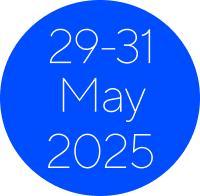Chair: Sonia Souto Camba (Spain)
Speakers: Kesia Castro (Brazil), Amara Perera (Sri Lanka), Rudi Steenbruggen (Netherlands)
- To identify challenges that physiotherapists face in their practice with older population
- To critically reflect on changes needed in physiotherapy practice, education, research and policy regarding the management of the older population
- To learn from global and regional practices and explore actions and tools in geriatric physiotherapy to empower effective health promotion, disease prevention and rehabilitation in the elderly
The aging population continues its remarkable growth worldwide, with individuals aged 65 years and older projected to rise from 10% in 2022 to 16% in 2050 [1]. The accelerating life expectancy is associated with progressive decline in both physical and cognitive functions, as well as with development of several pathological conditions which may lead to long lasting disabilities. The increasing number of geriatric health problems, combined with decreasing number of active caregiver workforce is a substantial burden in the health care and demands adequate changes of existing models, especially in the geriatric physiotherapy as key component of the geriatric health care.
Although the problematic of management of aging population in the context physiotherapy is globally recognized, its specificity for the different regions of the world with their particular socioeconomic, professional and cultural models needs a closer look. For example, while Europe is currently the most aged region and puts strong emphasis on welfare technology, East Asia is the most rapidly ageing region in the world [2, 3] and faces the challenge of transition from family to professional care [4]. The need of adequately prepared geriatric specialists, as well as the development, evaluation, and implementation of novel approaches to achieve patient-centered treatment and promote healthy ageing, is acknowledged in the Latin American region [5]. There is clear need to learn from global and regional practices to highlight strategies related to the implementation of digital technologies, health promotion and education, which physiotherapists can use in a variety of professional settings to respond the growing demands of aging population.
This interactive symposium will begin with a brief introduction by Sonia Souto to outline the relevance of the topic and the significance for the physiotherapy profession and for higher education. Each speaker will share their experience within their individual physiotherapy context and specific model.
Based on the conducted needs analysis within the CAPAGE project in Sri Lanka [6], Amara Perera will address barriers and facilitators for implementing physiotherapy interventions for the aging population in low- and middle-income countries. The importance of culturally adapted physiotherapy interventions in elderly will be discussed further. Rudi Steenbruggen will draw upon examples from his own research and experience to illustrate the role of novel technologies in improving the quality of hospital-based physiotherapy for geriatric patients [7]. Kesia Castro will share her view as a practitioner about the models of sociosanitary care for the elderly in Brasil.
During the presentations, an interactive session with the audience will provide opportunities for attendees to discuss and reflect on their own experiences as professional and educational specialists in the field of geriatric physiotherapy. The chair will conclude the session with summary remarks and future perspectives.
Implications/conclusions
This focused symposium will encourage physiotherapists working with the geriatric population to critically reflect on their role as practitioners and researchers in adapting and further developing existing models. This reflection will hopefully promote more efficient prevention and rehabilitation practices.
- United Nations. World Population Prospects 2022: Summary of Results https://www.un.org/development/desa/pd/sites/www.un.org.development.desa.pd/files/wpp2022_summary_of_results.pdf (2022).
- Frennert, S., & Baudin, K. (2021). The concept of welfare technology in Swedish municipal eldercare. Disability and rehabilitation, 43(9), 1220-1227. https://doi.org/10.1080/09638288.2019.1661035
- United Nations. (2016). Concise report on strengthening demographic evidence base for the post-2015 development agenda. New York, NY: Department of Economic and Social Affairs, United Nations.
- Asian Development Bank (ADB. (2022) DOI: http://dx.doi.org/10.22617/TCS220199-2
- Robledo LMG, Cano-GutiéRrez C, Garcia EV. Healthcare for older people in Central and South America. Age Ageing. 2022 May 1;51(5):afac017. doi: 10.1093/ageing/afac017. PMID: 35604089; PMCID: PMC9384165.
- Promoting academic and professional excellence in health care to meet the challenges of aging in Sri Lanka. https://capage.eu
- Steenbruggen RA, Dolleman G, van Heusden-Scholtalbers LA, Maas M, Hoogeboom TJ, Brand P, Wees PV. Quality aspects of hospital-based physiotherapy from the perspective of key stakeholders: a qualitative study. BMJ Open Qual. 2022 May;11(2):e001843. doi: 10.1136/bmjoq-2022-001843. PMID: 35589276; PMCID: PMC9121497.
See the 24 focused symposia to be presented at congress.
Find out who the key speakers at congress will be.
Find out which clinical topics will be covered in these discussion-based seminars.




